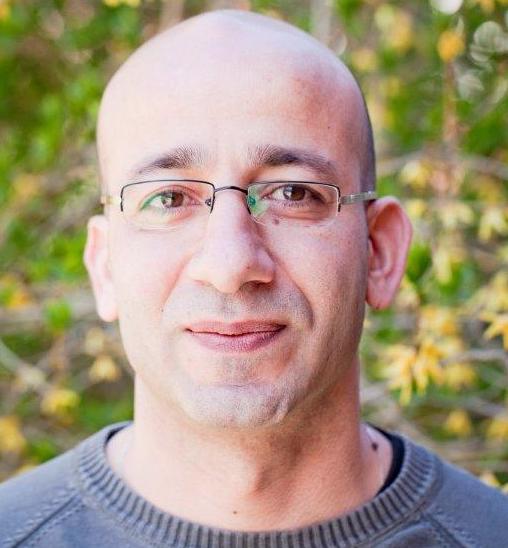Hello there, Samer Sawalha!
Hello there - an article series to get to know KTH FOOD Faculty

Samer Sawalha is conducting his research on environmentally friendly technologies for refrigeration and heating, an important part in the food system, enabling preservation and increased lifetime of food as well as preventing waste.
Sawalha's research is mainly applied in supermarket refrigeration. The focus is on the use of natural refrigerants, and maximization of energy efficiency to reduce the energy bill and the CO2 emissions. He explains that energy has been strongly felt as an important factor in food security over the last couple of years. The high energy prices drove the costs of almost all processes along the food chain. He sees that an energy efficient and environmentally friendly cold chain will contribute to a more sustainable food system.
What value do you see in being affiliated with KTH FOOD Centre?
In connection to the food chain, we have in our discipline the term “cold chain”, which uses equipment along the food chain to maintain required temperature of food from harvest/production to consumption. Also, in food processing high temperatures might be needed and heat pumps can be used for this. Our research work has only been focusing on supermarket energy systems, which is only one station in the cold chain, we would like to expand to other areas in the food chain such as transport and processing/production where we can apply our knowledge of environmentally friendly refrigeration and heating technologies. Therefore, being affiliated with the center will hopefully result in active networking and finding new partners and new research questions.
How come you have decided to conduct your research on environmentally friendly refrigeration?
The negative effects the synthetic refrigerants have on the environment are well known and environmentally friendly solutions must be found. Supermarket refrigeration is an application area that consumes (via leakage) large amounts of refrigerants and supermarket buildings are the most energy intense commercial buildings. Therefore, reducing their impact on the environment is essential, especially because supermarkets are vital components in our modern lifestyle. Additionally, supermarket energy systems are complex with simultaneous refrigeration, heating, and air conditioning needs which can be supplied by single centralized machine, which makes the system design, optimization, and control an interesting engineering challenge.
What opportunities of contribution do you see in your research?
We see an opportunity to cooperate with new industrial partners and explore new application areas in the food/cold chain where we can conduct research. New application areas will mean new requirements from the energy systems which require new solutions. Other researchers in different areas in the food research may have energy involved in their processes and we can cooperate to find the best energy solutions at early stage in the technology implementation.